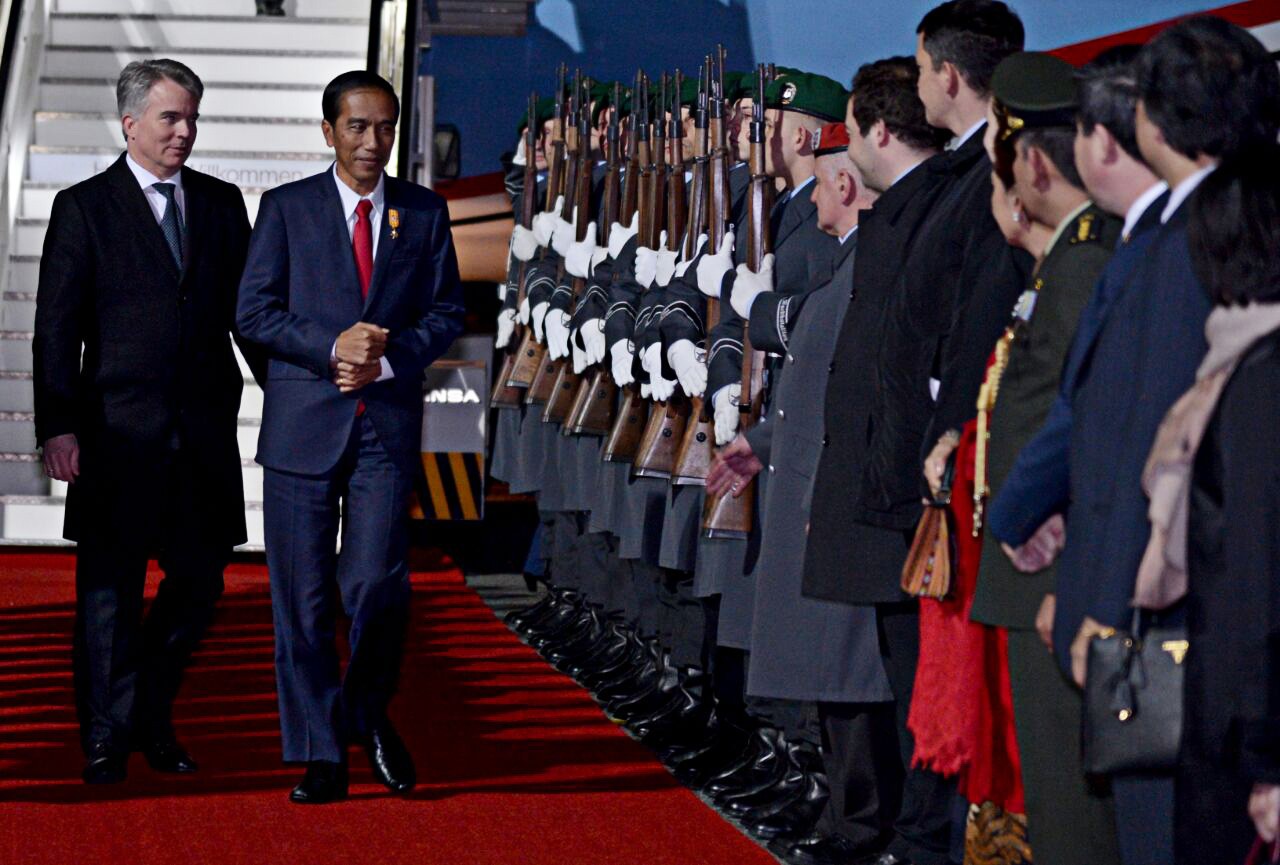Popular Reads
Top Results
Can't find what you're looking for?
View all search resultsPopular Reads
Top Results
Can't find what you're looking for?
View all search resultsIndonesia to learn vocational education from Germany: Minister
Change text size
Gift Premium Articles
to Anyone
Indonesia plans to cooperate with Germany to strengthen its education sector, especially with regard to vocational education.
Foreign Minister Retno LP Marsudi said cooperation in the education sector was the main focus of President Joko “Jokowi” Widodo’s working visit to Germany.
"Why vocational education? Vocational education is obviously very necessary at this time to respond to the needs of today's market," Retno said at a press conference at the Adlon Kempinski hotel in Berlin.
Vocational education prepares people to work in various sectors, such as trade and manufacturing, or in supporting roles of various professions, such as engineering, accounting, nursing, medicine, architecture and law.
Retno added that vocational education was aimed at preparing Indonesia to embrace its demographic bonus period, during which more than 50 percent of the country's population were below the age of 30.
"Undoubtedly, to improve or strengthen vocational education, the government should partner with the private sector and one of Germany’s key success factors in education is the partnership between the private sector and the government," she went on.
Retno said enhancing cooperation in the education sector was particularly important for Indonesia, as it was now facing tighter competition following the implementation of the ASEAN Economic Community (AEC) at the turn of the year.
"Our qualification and expertise in certain fields of professions must be improved, and one aspect of this is strengthening vocational education," the minister said.
President Jokowi and his entourage arrived in Berlin on Sunday evening local time. Indonesian Ambassador to Germany Fauzi Bowo welcomed the President. German Ambassador to Indonesia Georg Witschel was also present.
Retno said President Jokowi’s working visit was in response to German Chancellor Angela Merkel’s invitation conveyed during their meeting on the sidelines of the G20 Summit last year.
During the one-day visit to Germany, Jokowi will also attend several activities, including two ‘one-on-one’ meetings and a business forum. The President is also scheduled to meet with Indonesian citizens in Germany.
Indonesian Ambassador to Germany Fauzi Bowo explained the German education system to journalists at the press conference. After compulsory education of nine years, he said, students were given the opportunity to go to university or continue their studies at vocational education institutions.
"They are given an apprenticeship opportunity. They already receive a salary of a moderate amount, and two days a week they get vocational education that focuses on skills," Fauzi said.
The ambassador said the skills of Indonesia’s young generation needed to be improved. This would become a mainstay of Indonesian economy in the future, he added.
Fauzi went on to say that Germany’s youth unemployment rate was the lowest in Europe, even in the whole world, particularly because the country’s workforce had professional skills, so they no longer burdened the society and the country.
"We will learn about the system. The President will have a closed-door meeting with Chancellor Merkel, probably it is also in this regard," he added.
Fauzi said creating a partnership with the private sector was necessary to finance the vocational education program. "Private companies should be involved, because they will utilize this skilled workforce," he said. (ebf)










